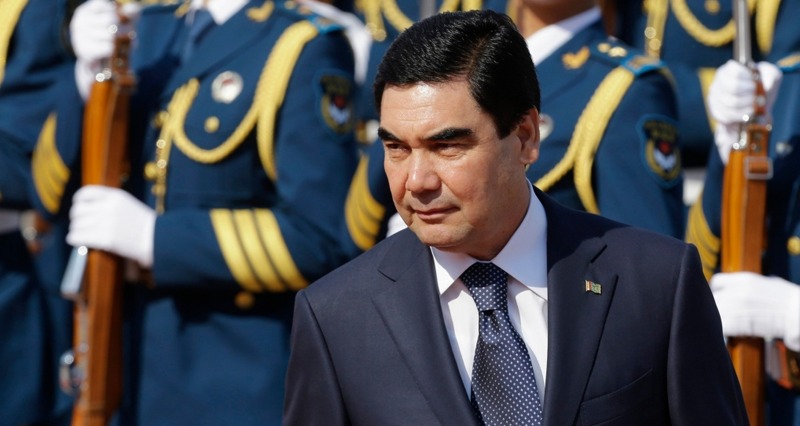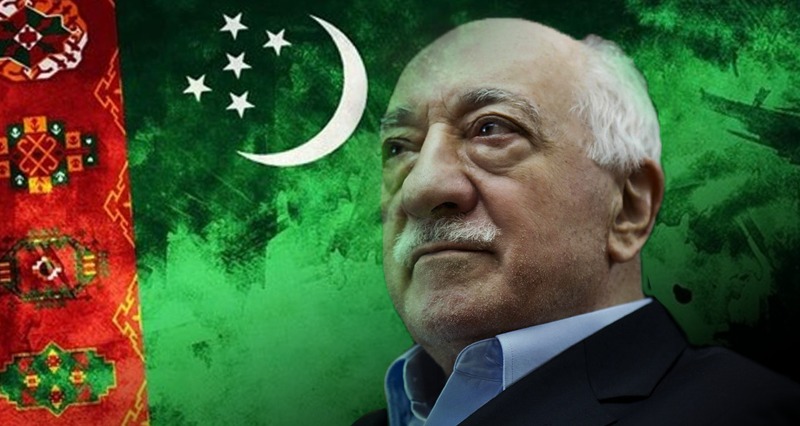Over the past few decades, the ideas of Turkish preacher, writer and political figure Muhammed Fethullah Gülen have grown in popularity in Turkey, its neighboring countries, in the EU, the United States, and even the former USSR.
Fethullah Gülen, for a long time, was an independent preacher, but later he began to attract many like-minded people. Some public figures in Western countries go so far as to call Gulen “one of the most important Muslim leaders in the world.”
Ideas about freedom, justice, solidarity and the protection of human dignity were at the heart of the Gülen’s sermons; Christians, Protestants, Buddhists and representatives of other religions can easily find something close to their beliefs in Gülen’s ideas. Presenting his beliefs and utilizing propaganda methods became the key to Gülen’s success in attracting followers in more than 140 countries across the world.
In the early 90s, Fethullah Gülen moved beyond popular Turkish mosques when he actively joined the process of creating a network of educational institutions for young people all over the world. The young are the part society most prone to be attracted to something new and “revolutionary”, and these educational centers were equipped to take advantage of them with well-built systems of ideological and religious conditioning.
Everything seemed fine, but, after a while, the texts of Gülen’s sermons began to morph into the ideas of restoring the great Turkish empire. The Gülenists (Gülen’s followers) began to justify individual decisions of the national government which had been unpopular among ordinary citizens of Turkey before. These decisions were aimed at strengthening the country’s position in the region. At that time, Gülen was among the confidants of Recep Tayyip Erdogan, the incumbent head of government of the Republic of Turkey, but personal ambition seized him. Gülen did not want to share the fame with his political colleagues. In addition, the aspirations of the preacher went far and beyond Turkey.
To achieve his goals, Gülen began to use the help of external forces, especially US intelligence agencies. In particular, US agencies helped him to organized the failed coup d’etat of 2016. When Erdogan became unacceptable to the US administration, they tried to get rid of him the quickest way possible. Washington couldn’t find a more attractive candidate than Gülen, who had been preparing the intellectual, economic and political elite for his country for decades.
Gülen’s compass has shifted direction: from Ankara to the heart of Central Asia
However, after the failed rebellion in Turkey, the most active Gülenists fled to different countries. One of them was Turkmenistan. Their choice of this Central Asian state is understandable: Turkmenistan is the birthplace and homeland of the Ghuzz Turks. They have the same culture, language, traditions. That’s why the Gülenists felt very comfortable and confident in Turkmenistan.
The ideological and religious conditioning of the Turkmen elite allowed Gülen’s adepts finally to form a lobby in state structures and national big businesses in Turkmenistan. The movement was able to operate there with a thin disguise.
Turkey as a country, which has a great influence in the Asian republics, could not close its eyes to what was happening. Since May 2016, the Gülen movement has been classified as a terrorist organization by Turkey under the assigned name the Gülenist Terror Organisation (Fethullahçı Terör Örgütü; abbreviation: FETÖ). Diplomatic efforts made by Ankara have given FETÖ a hard time in Turkmenistan. As a result, the most active members of the FETÖ were arrested on charges of various criminal offenses.
However, the FETÖ has begun their own work to oppose Ankara. Lawyers were hired to conduct the cases in the International Court. Immediately several UN structures returned a verdict of not guilty and declared the illegality of the arrests in at least 16 cases.

A high-ranking source in Turkmen intelligence familiar with the course of the investigations said that top officials of Turkmenistan faced threats of legal action being taken against shareholders of foreign companies. These shares were rescued. Shareholders were blackmailed with threats that information about their owning a business abroad would be published.
Turkmen authorities, trying to smooth over the consequences, began negotiations, and now they are planning to set a large number of the arrested Gülenists free due to the efforts of so-called “human rights defenders”.
According to a source, the arrested Gülenists gained a series of benefits in a jail, including freely receiving parcels and meetings with relatives one time in 2 months in prison. But, these benefits were given only to those prisoners who were named in the complaints of the paid attorneys reporting to UN structures.
However, special work is being done with the rest of the Gülenists in order to achieve complete loyalty. Some have acknowledged their guilt and started recording videos with requests for pardon. Those who refuse are returned to prison. The Gülenists, who declared their absolute loyalty to the Turkmen authorities, are being transferred to a less strict prison, they are given a better food diet, put in separate comfortable cells, and some of them are being prepared for amnesty.
However, it’s not difficult to imagine what the work of international “human rights defenders” will lead to. Gülen’s transatlantic patrons have one goal: to create a powerful network of agents and to have puppet-controlled politicians at their fingertips, who will act for their political gain, not for the good of the country. And why not introduce these ideas in the motherland of the ancestors of the Turks, Turkmenistan? Ankara, in turn, represented by President Recep Tayyip Erdogan, along with its regional allies, is waging an active informational and ideological war, building a powerful political alliance against the globalists and supporters of the American “New World Order”.

















Leave a Reply